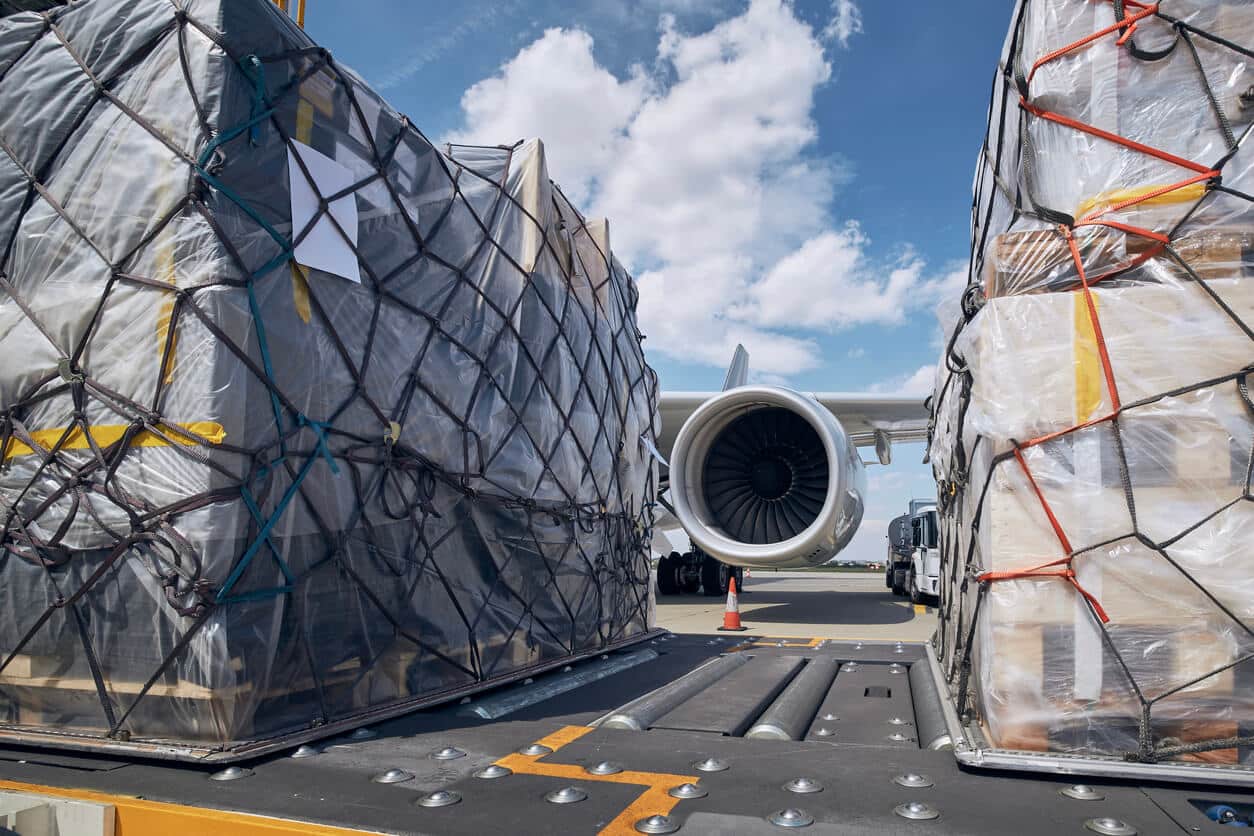Across Europe, supply chains are under constant pressure to move faster, comply with tighter regulations…
January 26, 2023
Top 5 logistics trends to expect in 2023
As the new year begins, we are expecting the logistics sector to continue its fast-paced journey of change driven by technology and innovation. The growing deployment of AI and cloud-based solutions within logistics, combined with the increasing volume of data available, presents both benefits and challenges for logistics suppliers and consumers. With so many changes taking place, what will be the major trends for 2023? Below are the ‘Top 5’ trends we’re keeping an eye on.

Video Player
00:00
00:14
#1 Sustainability
Today’s consumers are more conscious of their purchasing power. They are interested in learning about their carbon footprint’s impact on the planet and how to minimise it. A survey from The IBM Institute for Business Value reports that 51% of consumers recognised that environmental sustainability is more important to them today than it was 12 months ago.
So what does this mean? The demand for action is high, and transparency regarding future targets and green initiatives is key to building long-term relationships with partners and boosting brand loyalty. The logistics sector bears the great responsibility of finding more sustainable solutions, setting measurable targets, and bringing visible results.
With the rise of new technologies designed to accelerate energy-efficient supply chains, our industry does more than greenwashing. From electric and hydro-powered delivery vehicles to load and storage capabilities, efficiency improvements are in the spotlight, making sustainability the most important industry trend within logistics.
#2 Advanced Analytics and Business Intelligence
According to Gartner, 74% of supply chain executives rank advanced analytics as the second most crucial supply chain technology. Advanced data provides accurate insights to optimise resources and operations, whilst Business Intelligence (BI) supports organisations in making the right decisions by providing an overview of their current situation, building data-based projections, and identifying trends.
The application of advanced analytics and BI in logistics has become essential for many organisations. The ability to oversee and monitor each segment in the supply chain with real-time data sharing and evaluation is helping them to maximise their operational capabilities. From freight capacity management to route optimisation and storage, BI enables visible improvements in operations visibility and demand forecasting, leading to a reduction of potential disruptions, whilst maximising existing resources to perform and prepare for future growth and scalability.
3# Costs optimisation
From applying higher cost transparency to adopting more careful evaluations at every tier, supply chain and procurement teams are expected to develop better strategies that address unpredictability brought on by geopolitical unrest and COVID-19 lasting effects.
Efforts to manage high inflation will continue in 2023, with cost reduction being the primary concern. With governments and companies working hard to bring expenses under control, the logistics sector will come under close examination. From distribution strategies to returns solutions, wastage and labour, we expect to see more debate on the balance between service and speed in relation to costs.
#4 Cloud-based systems management
Software as a service (SaaS) is another pressing trend for logistics. The digitalisation of operations through Warehouse Management Systems (WMS) continue to offer higher standards of control, plus accessibility from anywhere. As WMS advances, enabling increased shipment tracking transparency and providing richer data quality and more efficient workflows, it has become clear that cloud-based computing has redefined business management in logistics. From transportation to inventory and warehouse management, the logistics sector has benefitted from SaaS implementation significantly, reducing errors and delays by automating processes. This year scalability and security are key, and logistic managers will need to keep a keen eye on data regulations and compliance standards.
#5 Artificial Intelligence
AI continues to be an important trend in the logistics sector. Its deployment within warehousing and last-mile delivery will result in further reducing human intervention. Infoholic Research reports that the Artificial Intelligence market in the sector is forecast to hit $6.5 billion by 2023.
With top tech companies such as Google and Amazon leading the way, the opportunities for AI on inventory management performance are endless. Today’s automated machines are already locating items in large spaces faster, allowing access to higher and narrower racks, and conducting storage space mapping at a precision level not comparable to manual labour. From improving efficiencies to reducing costs, AI solutions will drive greater competition and opportunities for logistic suppliers.
Conclusion
These ‘Top 5’ 2023 trends demonstrate that our industry is far from static. Change is inevitable, and those that are already embracing the change will be able to leverage competitive advantage. Current geopolitics and climate circumstances have set new standards, rewarding businesses that embrace resilience and agility, able to flex to meet the customers’ and the economy’s expectations. We can identify common ground between the emerging and ongoing trends in logistics: transparency and development are the engines that drive success in our sector, the key ingredients for a resilient formula that can offer operations stability amid general uncertainty, boosting the customer experience and continuously adjusting KPIs to fit into today’s competitive market.
As leaders in the time-critical logistics space, we are investing in these trends, helping our clients to achieve their future efficiency and business objectives. We believe in technology and the value added by bespoke solutions. Are you ready to share your vision with us?
Get in touch today to discuss your 2023 requirements with our experts.


